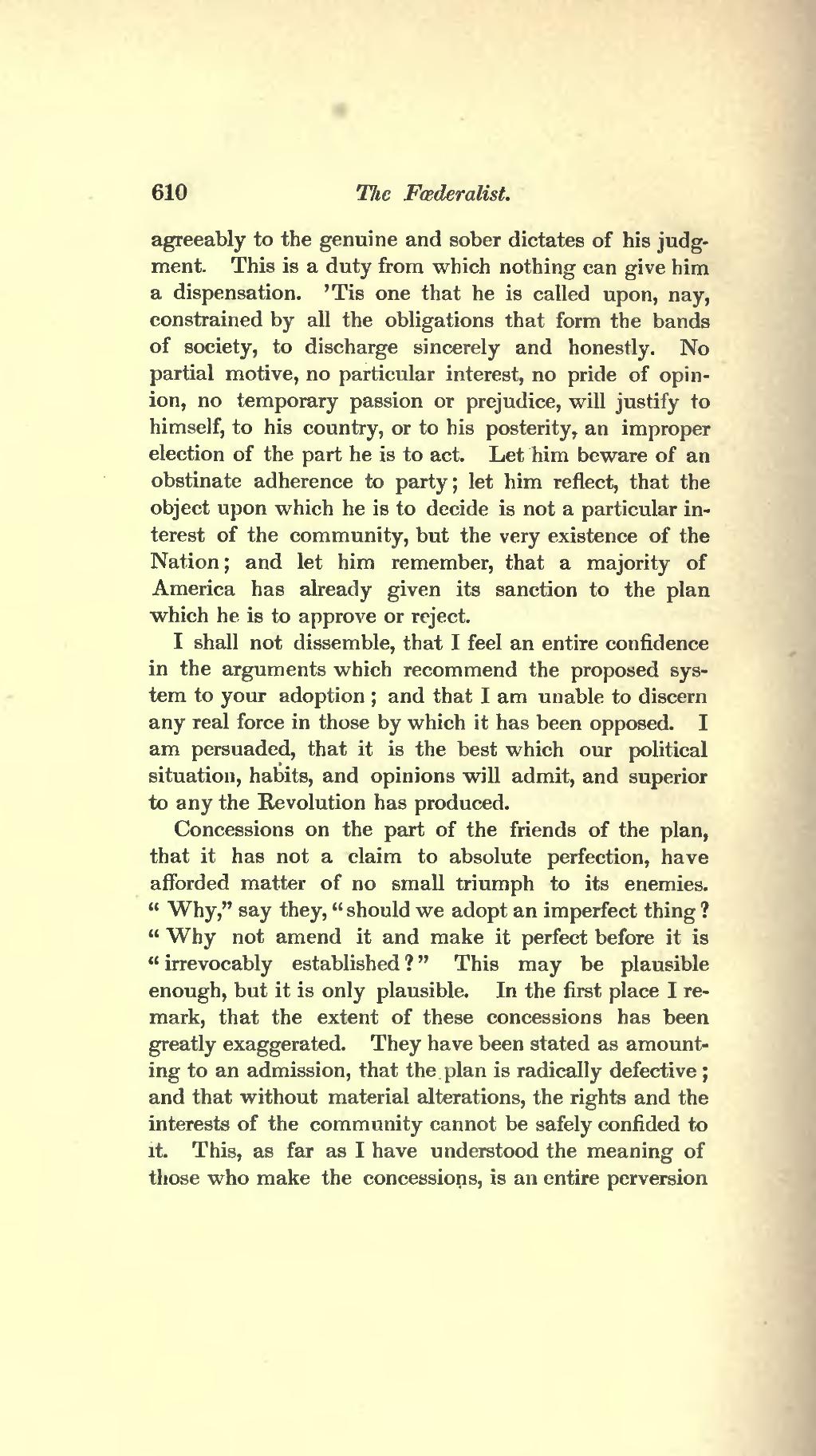agreeably to the genuine and sober dictates of his judgment. This is a duty from which nothing can give him a dispensation. 'Tis one that he is called upon, nay, constrained by all the obligations that form the bands of society, to discharge sincerely and honestly. No partial motive, no particular interest, no pride of opinion, no temporary passion or prejudice, will justify to himself, to his country, or to his posterity, an improper election of the part he is to act. Let him beware of an obstinate adherence to party; let him reflect that the object upon which he is to decide is not a particular interest of the community, but the very existence of the Nation; and let him remember, that a majority of America has already given its sanction to the plan which he is to approve or reject.
I shall not dissemble, that I feel an entire confidence in the arguments which recommend the proposed system to your adoption; and that I am unable to discern any real force in those by which it has been opposed. I am persuaded, that it is the best which our political situation, habits, and opinions will admit, and superior to any the Revolution has produced.
Concessions on the part of the friends of the plan, that it has not a claim to absolute perfection, have afforded matter of no small triumph to its enemies. "Why," say they, "should we adopt an imperfect thing? Why not amend it and make it perfect before it is irrevocably established?" This may be plausible enough, but it is only plausible. In the first place I remark, that the extent of these concessions has been greatly exaggerated. They have been stated as amounting to an admission that the plan is radically defective; and that without material alterations, the rights and the interests of the community cannot be safely confided to it. This, as far as I have understood the meaning of those who make the concessions, is an entire perversion

